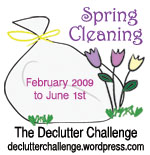Winter Driving Checklist
[Source: First Lady Maids]
Winter transportation can mean ice, snow, and hazardous roads. Road conditions can change in an instant. Before traveling, give cars a winter preparedness exam:
- Check antifreeze
- Check and replace older batteries.
- Remember to keep the gas tank near full to avoid freezing water in the fuel line.
- Check tires and spare tire for proper inflation
Make sure automobiles contain the following emergency supplies:
- Bag of sand, road salt or non-clumping cat litter. The bag’s extra weight means better traction, and the contents can be spread under slipping tires. (Note: some cities have specific regulations about things you can use, consider using towels instead)
- Ice scraper.
- Jumper cables.
- Small shovel (to dig snow away from wheels, or scatter sand on roadway).
- Tire chains (every driver should practice putting them on).
- Flares or reflective triangle to warn other motorists if you break down.
- Blanket.
- Flashlight and batteries.
- Gallon jug of drinking water.
- First aid kit.
When traveling by car, include emergency food and clothing for each traveler. Pack supplies in a backpack in case you need to abandon your car. An emergency backpack should include:
- Jacket, hat, gloves and snow boots.
- Nonperishable food.
- Cell phone.
- Money.


Recent Comments